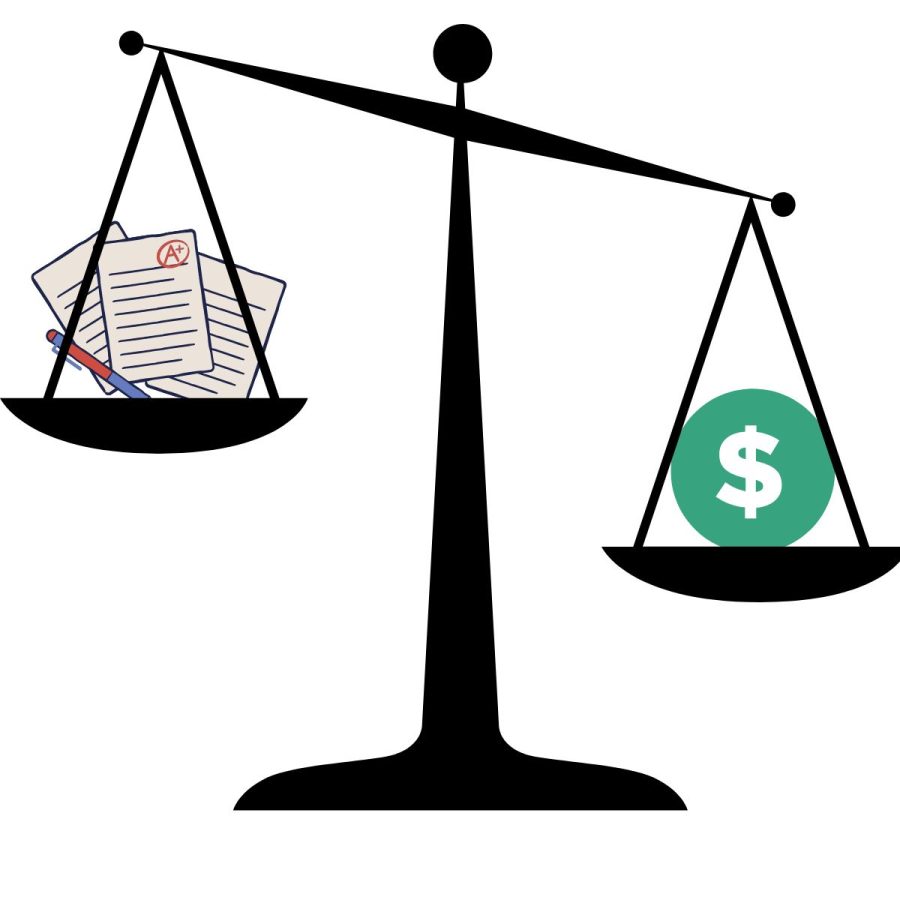Weighing the Costs and Benefits of AP Testing
The deadline to decide how a student obtains college credits from these courses causes stress
May 12, 2023
Throughout the school year, students taking an Advanced Placement (AP) class or multiple AP classes work rigorously to keep up with the large load of work while still achieving high grades. Many students find themselves overwhelmed with the heap of assignments thrown at them right off the bat. However, on top of this, a deadline is thrown at them relatively early to decide if they’d like to take a test in May for their AP class. This year, the tests will take place in the weeks of May 1 to May 5 and May 8 to May 12. These tests bring loads of stress to many students as it decides if they will be applicable for college credit from that course. Even students who work hard all year and maintain an almost-perfect grade in the class can perform poorly on the end-of-the-year test, making it seem like all their hard work was for nothing.
On top of the fact that hard work can seem to go to waste, these tests also cost around $100. Some students take multiple AP classes and multiple AP tests, which can add up to hundreds of dollars in testing.
Teacher Sherry West has been teaching AP Calculus for around 20 years. West says that every student has a unique skill set, meaning some students may excel in test-taking, while others don’t. Students are sat down at tables and expected to display their understanding of the entire course, all while under a time limit. This testing environment and the high stakes surrounding the test’s results may create a high-pressure situation for many. For some, this feels like all or nothing.
“It is a one-shot deal. If you are having a terrible day, it may really affect your score,” West said.
She says testing performance varies among her students as mathematics classes have a wide range of students. West teaches both AP Calculus BC, which is differentiated, and AP Calculus AB, which is non-differentiated. Students in both of these classes have differences in their speed of solving problems and how careful they are with the notation in each problem, which can cause test scores to vary.
However, there is another option to receive college credits from AP courses. This works through paying for dual credit and maintaining a passing grade in the class.
For some, this feels like a more accurate and reachable representation of their knowledge. Although, it is important to acknowledge that this option costs more money and isn’t a possibility for students who aren’t able to pay that much money towards the credits. Through Nebraska Wesleyan University’s dual credit program, the cost is $285 for every three credit hours. While that can be more inexpensive than paying for regular tuition in college, it is still an unattainable cost for some students. Additionally, the course still requires hard work and a deep understanding of the topics.
“Dual credit allows you to demonstrate your knowledge over the course of the entire semester,” West said. “It allows those who are not ‘great’ multiple choice test takers to still get college credit for the course.”
Teacher Adriana Martinez has taught AP Literature and Composition for the past five years. Speaking about AP English courses, Martinez said, “While test prep can be helpful, it can’t undo months of disengagement from the course.” Cramming for an exam days before the test doesn’t allow students to develop a deep understanding of the information they’re trying to retain, which undermines the learning and retention process. While only studying by cramming information will store some information in short-term memory, it doesn’t create a long-lasting connection.
“Students not only need to know the content [of the AP class], but they also need to understand the test format itself,” Martinez said. This makes testing even more complicated as students need months of work to get familiar with the style of testing.
It can be difficult to choose between these two options because different colleges have different regulations. Concerning the AP test, different colleges accept different scores on the AP tests. This means while some colleges may accept a score of a three as a valid credit, others may require a four or a five. On the other hand, students may not be able to use the tuition credits they earn through Nebraska Wesleyan University at colleges outside of Nebraska.
Since the deadlines to obtain college credits are set early-on, students need to consider which option is best fit for their situation ahead of time.










